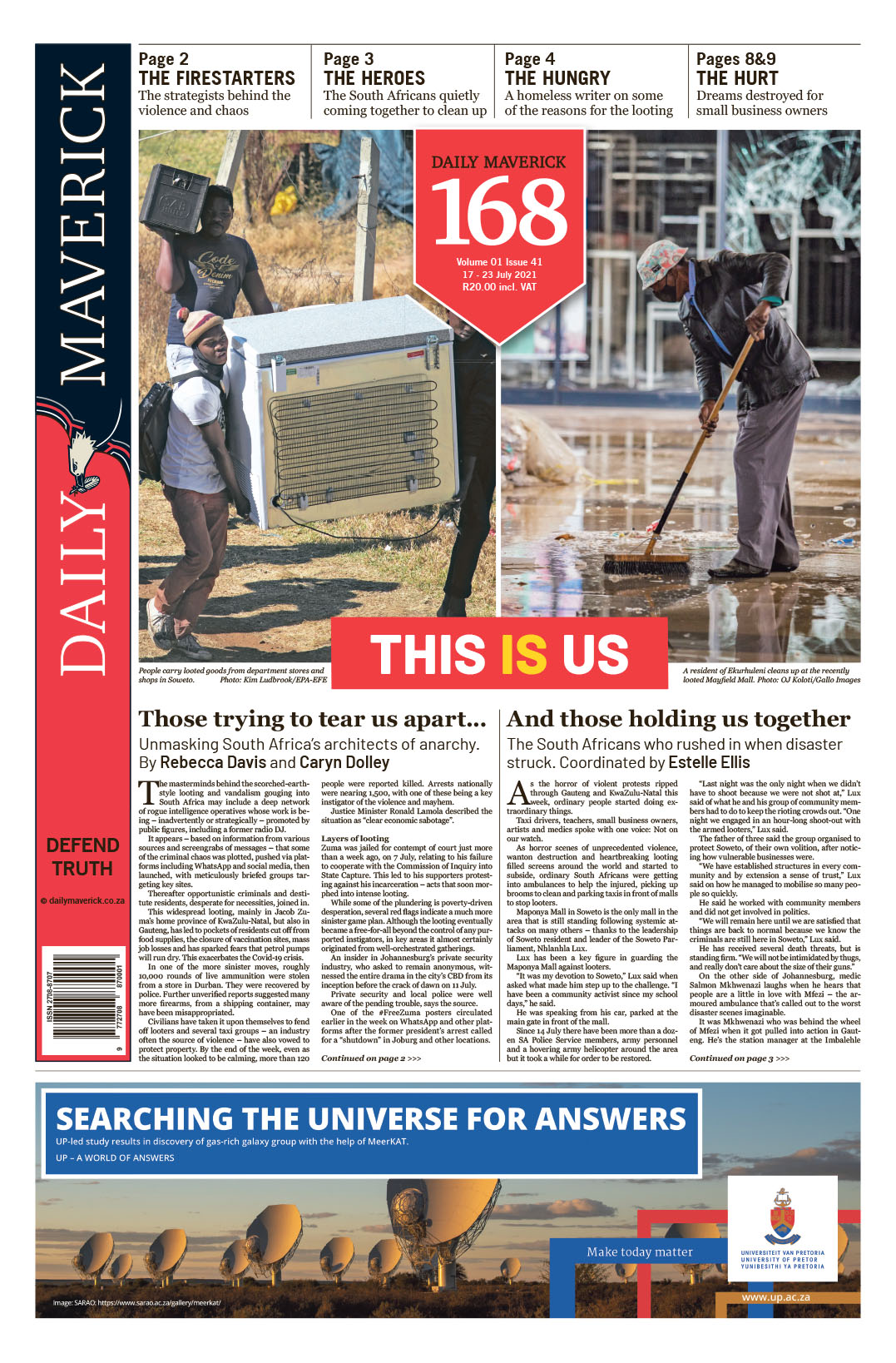The 3-Minute Rule for South African Current Events
The 3-Minute Rule for South African Current Events
Blog Article
The Greatest Guide To South African Current Events
Table of ContentsNot known Details About South African Current Events South African Current Events Fundamentals ExplainedGetting My South African Current Events To WorkGetting My South African Current Events To WorkSouth African Current Events for Beginners
The Limpopo Mirror is published in Louis Trichardt, a town in the north of South Africa's Limpopo district. Photo: Anton van Zyl This week the Competition Commission is probing just how online news is affected by AI chatbots, search and marketing innovation. The result of the hearings is crucial for the future of information coverage in South Africa.
Memberships and sales of private copies were generally suggested to cover this, yet the genuine money was advertising - and for some magazines, like the Cape Argus in Cape Town, the classifieds. South African current events. The marketers funded the news, whether in a national day-to-day, or a little weekly newspaper distributed in a country town
Arounds this revenue paid for the press reporter to attend the monthly council meeting, cover institution events and see the court to discover that may have ended up on the incorrect side of the law. Consider example the Limpopo Mirror, a weekly newspaper published in Louis Trichardt which among us, Anton, owns.
We 'd generally market just over 8,000 duplicates. The cost of printing was about 15% to 20% of our turnover. That has actually gone up to 30% and 35%. The advertisement loading (the percentage of room committed to advertising as opposed to information) was between 50% and 60%. South African current events. This has actually dropped to listed below 30% and some weeks we don't also get to 20%.
Things about South African Current Events
The decline in advertising results in less web pages in the paper, and much less room for information posts. As the internet came to be progressively popular, newspapers started releasing their stories online, typically totally free. Limpopo Mirror was one of the first papers in the country to publish a website with weekly information updates.
In the starting a lot of us were driven by experimentation and the thrill to be early adopters so we didn't shed out to the competition. However there was no feasible organization version. Adverts were unusual and it took a while before this ended up being the main way people review their information.
How South African Current Events can Save You Time, Stress, and Money.
It was hassle-free, instant and normally totally i thought about this free, specifically as the price of data went down. At the same time, purchases of printed papers began to decrease. A few instances: In 2006 the Sunday Times was the most significant weekend paper in South Africa, with an audited flow of just over half a million duplicates.
Last year it went down to below 13,000 offered duplicates and changed its distribution method. This has actually been the trend for most long-running papers on the earth.
But the freesheet model does not function well in informal negotiations or rural locations. To properly find out here now get to readers in these locations, it's also costly to supply door-to-door. So bulk declines of papers need to be left at purchasing centres, for instance, and wastefulness of these is high. This means you need to publish bigger quantities to reach the same number of individuals and this is not economically feasible.
To produce a paper has actually ended up being very costly, which means advertising tolls have actually had to enhance. In the previous twenty years there have actually also been remarkable changes in the way purchasers and vendors locate each other. First to go was the classified areas of papers. It was merely more affordable and extra reliable to make use of websites such as Gumtree, Junkmail or BOB (Bid-or-Buy).
The Ultimate Guide To South African Current Events
While this was all taking place, papers such as the Limpopo Mirror attempted to keep up. Print flow went down to around the 4,000 mark, the viewers did not relocate away.
The challenge was to turn that readership into an income model read review that would pay for quality journalism. In South Africa, unlike a few other parts of the globe, there is not a culture of spending for information. South African current events. Registration versions provided some solutions in Europe, but here it is presently not a viable option.
Social media keeps reporters on their toes. There is no information to prove this, it appears to us that mistakes are detected a lot more rapidly, and unethical behavior pounced on with better vigour nowadays.
The South African Current Events Ideas
Why is marketing not working for information magazines? Advertising and marketing earnings has been damaged primarily by Google Advertisements and social media adverts.
BNN is a news author. Their information tales constantly place extremely on Google News searches.
Days after Anton's story was released we both looked "Vhembe" (the area where Anton records from) on Google Information. Commonly BNN news tales, plagiarised and relatively rewritten by ChatGPT or some various other AI chatbot, appear greater in Google search than their authentic counterparts.
Two different Google items drive this scam: Google Browse drives viewers to BNN; Google Ads supplies the incentive for BNN's parasitical organization model. Much in 2024, 72% of GroundUp's website traffic has come to our site using search engines.
Report this page